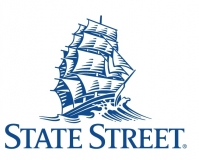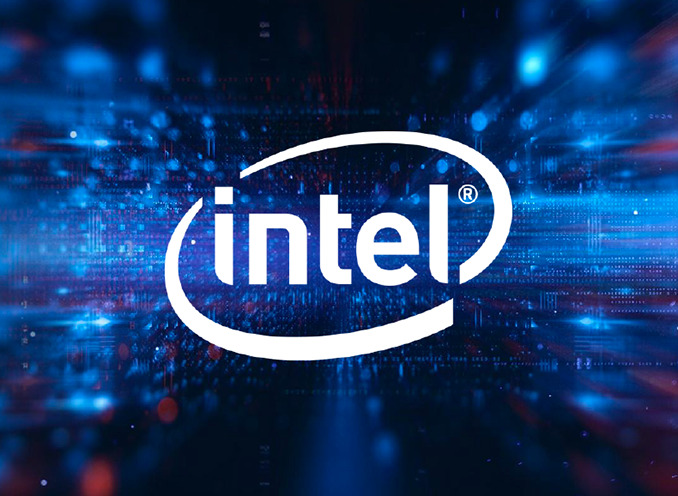Published
- 05:00 am

MUFG Union Bank N.A. today announced that receipt of real-time payments is available for its corporate, retail, and small business clients via the RTP® network, operated by The Clearing House. The RTP network provides instantaneous receipt of payments, which increases payment certainty and funds availability, with funds immediately available for use. Real-time payments enable MUFG Union Bank clients to improve cash flow, manage working capital, and streamline processes.
“Real-time payments offer our clients the payment processing speed to meet their business needs in a rapidly changing digital commerce environment,” said Ranjana Clark, Head of Global Transaction Banking and Transaction Banking Americas, and Bay Area President. “MUFG Union Bank is committed to supporting our clients' movement toward real-time payments in the United States to enhance their experience.
The RTP network is the first new core payments infrastructure built in the U.S. in more than 40 years and gives the banking industry a modern platform for domestic payments, complete with rich data capabilities and immediate payment confirmation. The system enables instantaneous settlement and availability, so those funds can be used or withdrawn as cash within seconds. With receipt of real-time payments, businesses will experience improved straight-through processing, automated reconciliation, fraud and risk reduction, rich data reporting and analytics capabilities, partnership integration, and reduced operational costs.
“In addition to accelerating the speed and certainty of the transaction, real-time payments provide a standardized message format delivering extensive information throughout the full payment lifecycle. It is a completely new way of thinking about payments,” said Managing Director Ray Fattell, Head of Product, Innovation, and Risk Management, Transaction Banking Americas. “We are committed to providing innovative product solutions, utilizing the latest technology, so that CFOs and treasury managers can optimize their business processes to achieve their objectives.
“MUFG Union Bank’s customers can enjoy the benefits of immediate funds availability now that they can receive real-time payments over the RTP network,” says Jim Colassano, Senior Vice President of RTP Product Strategy and Development, The Clearing House. “We are very excited that MUFG Union Bank has joined the real-time payments revolution.”
Related News
- 05:00 am

Expenditure on European payment cards has grown by a third since 2014 to reach €3.9 trillion, as cards are used increasingly for everyday purchases
Rapidly rising usage spurs card spending
RBR’s latest research, Payment Cards Issuing and Acquiring Europe 2020, shows that in 2018 cardholders in the UK, France and Germany spent the most, with the total increasing by 26%, 19% and 22% respectively since 2014. The fourth largest market, Russia, saw spending double over the same period.
The RBR report showed that growth in spending is inextricably linked to the ramp up of card usage. Greece stands out in particular, as card usage grew sevenfold, following widespread state-mandated card acceptance at many merchants. Unsurprisingly, the country also saw the fastest growth in spend, which almost quadrupled over the four-year period.
Eastern European markets tended to be the fastest growing in terms of expenditure, notably Ukraine, Romania and Hungary where spending more than doubled. Recent surges in card spending across Europe can in large part be attributed to the growing adoption and acceptance of contactless payments, as well as increased online shopping.
Behavioural shift sees cards used for everyday transactions
RBR’s report showed that, for Europe as a whole, the number of transactions grew nearly three times as fast as the rise in expenditure, with the result that the average value of each transaction continues to fall – from €46 in 2014 to just €34 in 2018. The reason for this is that cards are increasingly being used for everyday, low-value purchases, as customers rapidly adopt contactless and mobile payments. As a result, growth in the total number of card payments made by Europeans is accelerating year-on-year.
Russian cards see the lowest average ticket in Europe, at €12, while the number of payments in the country nearly quadrupled over four years. Whilst this echoes the general pattern seen elsewhere in Europe, in Russia in particular this has been driven by initiatives such as contactless ticketing on the Moscow and St. Petersburg metro systems, and lucrative cashback reward schemes, offered by a number of banks, incentivising use of cards ahead of cash.
Increased debit card spending drives overall growth
RBR’s research shows that the vast majority of markets in Europe have seen an increase in the proportion of spend made with debit cards. There has been a widespread consumer shift from pay-later credit cards to pay-now debit cards, as a result of economic uncertainty and increasing consumer frugality. RBR found that this shift is most stark in Greece, with debit growing from 26% of the country’s card expenditure in 2014 to 68% in 2018.
Thomas Madden, who led RBR’s Payment Cards Issuing and Acquiring Europe 2020 research, commented: “The increasing customer adoption of payment cards, as well as expanding acceptance networks across Europe, is helping drive the sustained growth seen in card expenditure. The rising use of debit cards, in particular, as the default payment method for many Europeans, has significantly boosted the amount they have spent on their cards in recent years”.
Related News
- 04:00 am

State Street Corporation (NYSE: STT) today announced it has entered into a new partnership with iCapital Network[1], the financial technology platform setting the industry standard for delivering access and efficiency in alternative investing. The collaboration will combine State Street’s registered transfer agency and private market fund administration capabilities with iCapital’s platform technology and distribution network to enhance the offering and servicing of US registered funds.
Historically, private market funds, such as private equity, private credit, real estate and infrastructure have been available primarily to institutional investors. However, high-net-worth investors and family offices are increasingly seeking access and exposure to these alternative asset classes to achieve portfolio goals of diversification and income. This partnership aims to support State Street’s clients as they navigate this complex market.
This collaboration will allow State Street’s alternative fund manager clients to simplify and accelerate the launch of registered private market products, establish scaled access to the wealth management channels, monitor fund raising activities, and utilize a comprehensive, fully searchable database of all their investor documents across all funds.
“We’re delighted to be cementing our relationship with iCapital in order to support the needs of this growing distribution channel”, said Paul Fleming, global head of State Street’s Alternative Investment Solutions (AIS) group. “If the private markets were to capture just 5-10 percent of the affluent and mass affluent market in the US alone, it would represent between $800 billion and $1.6 trillion in assets under management.[2] A strong partner with a solution that addresses the needs of the investor, fund manager and investment advisors and distributors is critical. That’s why we’re partnering with iCapital.”
“The opportunities of the private market have traditionally been unattainable for those that lack the scale of an institutional investor”, said Lawrence Calcano, chief executive officer at iCapital Network. “However, our technology is rapidly changing that with access, efficiency and transparency. This partnership with State Street aims to create new opportunities for fund managers, advisors and high-net-worth investors by facilitating the offering of registered funds, providing managers access to fresh capital and giving investors an opportunity to add new asset classes to their portfolios.”
Related News

Myles Dawson
Managing Director at Adyen UK
For us in the West, New Year feels like a distant memory. But, while we’re in the midst of ‘Dry Veganuary’, celebrations in China are just about to kick off. see more
- 09:00 am

Market Logic announced that Visa & Market Logic have been named a winner in the 2020 BIG Innovation Awards presented by the Business Intelligence Group.
The award acknowledges Visa’s Market Logic powered insights platform, The Global Insights Exchange, which helps thousands of marketers to search, share and use insights across countries and business lines to drive successful business decisions. The platform holds a growing knowledge base worth over $50 million, comprising hundreds of market research projects, marketing ROI and business analytics, and fully integrated content from syndicated sources.
Market Logic CEO Kay Iversen said Visa’s Global Insights Exchange “leverages Market Logic’s knowledge graph and AI capabilities to deliver insights on demand, upcycle existing research to prevent duplication, and efficiently generate new insights via collaboration with research agencies.”
Technology is only one of three contributing factors driving the award-winning innovation. Kay Iversen said Market Logic is “not only proud to provide Visa with game-changing technology, but we’re also delighted to partner with them in an innovation that embraces behavioral change and governance.”
Visa’s marketing governance unit systematically measured ROI on The Global Insights Exchange, as well as targeted change behaviors, throughout their transformation journey. Through this process, key scenarios were identified and measured where hundreds of thousands of dollars are saved.
“This year’s winners show just how deep a role innovation plays in nearly every aspect of business,” said Maria Jimenez, chief operating officer of the Business Intelligence Group. “We are thrilled to honor Market Logic and Visa for their outstanding Global Insights Exchange, which brings together the key elements for successful innovation inside a world-leading corporation – groundbreaking technology, a robust change management program, and governance to ensure that clearly stated business objectives are achieved.”
Organizations all over the world submitted their recent innovations for consideration in the BIG Innovation Awards. Nominations were then judged by a select group of business leaders and executives who volunteer their time and expertise to score submissions.
Related News
- 01:00 am

EMQ, a global financial settlement network today announced that customers from around the world can make secure and reliable cross-border money transfers to their family or friends leveraging the company’s extensive real-time pay-out network.
“China is an extremely important market in our global growth strategy as it is the world’s second largest recipient of remittances with $67 billion in currency flow into the country in 2018, according to the World Bank,” said Max Liu, co-founder and CEO of EMQ.
“Since we launched our China gateway two years ago, we have continued to invest in our network infrastructure and strengthen our compliance capabilities in the region to deliver a faster, efficient and cost effective cross-border settlement platform that allows our customers to send money from anywhere in the world into China.”
Powered by EMQ’s global financial settlement network, our China gateway enables customers from around the world to seamlessly transfer money, in real-time and directly back home to their families. This provides greater access to digital financial services for the Chinese population.
“At EMQ, our customers are at the heart of our business and we always strive to launch services that add value to them with greater flexibility and cost savings,” said Steven Liu, Head of Business Development, APAC. “With the upcoming Chinese New Year holidays, we anticipate another year of strong demand in international money transfers and we are well-positioned to continue providing our global customers with the most compliant, end-to-end cross-border solutions leveraging on our comprehensive network across China.”
EMQ operates a global financial settlement network that currently spans across Europe, China, Hong Kong, Singapore, India, Indonesia, Japan, Vietnam, Cambodia, Thailand, Taiwan and the Philippines, with expansion underway across key business markets in the Middle East, Africa and the Americas.
Related News


Philippe Carrel
Chief Commercial Officer at Finmechanics
Neither IBORs nor RFRs; firms should ready up to work with both types of benchmarks and reference rates for the foreseeable future. The quantitative finance focused publications of 2019 have highl see more
- 08:00 am

Researchers from Intel have published a study examining whether AI can recognise people’s faces using thermal imaging.
Thermal imaging is often used to protect privacy because it obscures personally identifying details such as eye colour. In some places, like medical facilities, it’s often compulsory to use images which obscure such details.
AI is opening up many new possibilities so Intel’s researchers set out to determine whether thermal imaging still offers a high degree of privacy.
Intel’s team used two sets of data sets:
- The first set, known as SC3000-DB, was created using a Flir ThermaCam SC3000 infrared camera. The data set features 766 images of 40 volunteers (21 women and 19 men) who each sat in front of a camera for two minutes.
- The second set, known as IRIS, was created by the Visual Computing and Image Processing Lab at Oklahoma State University. It features 4,190 images collected by 30 people and differs from the first set in that it contains various head angles and expressions.
Each image from the data sets were first cropped to only contain each person’s face.
A machine learning model then sought to numerically label facial features from the images as vectors. Another model, trained on VGGFace2 – a model trained on visible light images – was used to validate whether it could be applied to thermal images.
The model trained on visible image data performed well in distinguishing among volunteers by extracting their facial features. 99.5 percent accuracy was observed for the SC3000-DB data set and 82.14 percent for IRIS.
Intel’s research shows that thermal imaging may not offer the privacy that many currently believe it to and it’s already possible to distinguish people using it.
“Many promising visual-processing applications, such as non-contact vital signs estimation and smart home monitoring, can involve private and or sensitive data, such as biometric information about a person’s health,” wrote the researchers.
“Thermal imaging, which can provide useful data while also concealing individual identities, is therefore used for many applications.”
Related News
- 07:00 am

Just five UK banks, two of them challengers, managed a net gain of customers in the third quarter of 2019, according to figures from the Current Account Switch Service.
Nationwide Building Society continues to have the largest net switching gain among the Current Account Switch Service’s 49 participant, putting on 25,355 customers in the quarter. Digital challenger Monzo gained 21,576, HSBC 17,204, Starling 7,075 and tiny ethical player Triodos 409.
In contrast, Halifax saw the biggest net loss, shedding 15,714, with NatWest losing 9,885 and Lloyds 8,076.
Overall, Brits used the service to switch provider more than one million times during 2019, taking the total since launch in 2013 to 6.3 million switches.
Amongst those who completed a switch using the, service, over three quarters say they prefer their new current account, with online banking (48%) and customer service (47%) identified as the core improvements.
Awareness of, and satisfaction in, the service remained consistent at 80% and 92% respectively. Of those who switched using the service 82 per cent would recommend it.
Age continues to play a central role in switching behaviour. Over the past three years, of those who switched over the age of 45, 75% used the service, compared with 41% of those under 25.
Matthew Hunt, COO, Pay.UK, says: "Although switching figures are increasing, there are still many people who could be taking advantage of the opportunities presented by moving their current account. This is particularly true of those in younger age groups and those considered financially vulnerable.
"We work to bring the benefits of switching to all by making it easy and hassle free, allowing people to move to an account which works better for them, whatever their financial situation."









